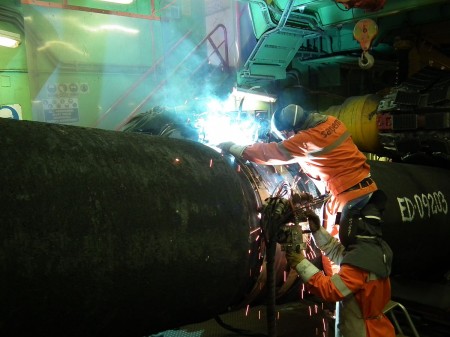
This article was originally published by the Center for Security Studies (CSS) in its Policy Perspectives series (Vol. 4/4, March 2016).
The prospect of building the Nord Stream 2 pipeline between Russia and Germany is dividing the EU into two camps. By following geopolitical considerations, both sides are neglecting the concept of a liberalized natural gas market and are overlooking Europe’s favorable position in current international gas trade.
Key Points
- Nord Stream 2 has turned out to be a symbolic conflict about how to deal with Russian gas imports and infrastructure projects
- The German government has lost diplomatic reputation and credibility by politically backing Nord Stream 2
- The EU needs to make clear, in how far a market approach or in how far a geopolitical approach is structuring its natural gas policies in general
- When sticking to its liberalized gas market model, the EU Commission will have to evaluate Nord Stream 2 under existing regulation, not based on an undefined foreign policy assessment
When Russia’s Gazprom and its five European partners (BASF, E.ON, Engie, OMV and Shell) signed a declaration to build two new pipelines through the Baltic Sea (‘Nord Stream 2’) in September 2015, this came as a real surprise for most observers. The project would increase existing capacity from 55 to 110 billion cubic meters (bcm) a year by 2019. Gazprom would act as the main shareholder with a stake of 50 percent in the Swiss-based pipeline company. Nord Stream 2 will follow a similar route along the seabed as the first pipeline project that started deliveries in 2011. The project is completely financed by its shareholders and does not receive financial support from public sources of the EU or a Member State. It is clear that from the Russian side, not only the aspect of defending and maybe even the possibility of enlarging market shares in Europe, but also the geopolitical motivation of circumventing Ukrainian territory and reducing payments for Ukrainian transit play an important role in the project. After the Black Sea pipeline project ‘South Stream’ to Bulgaria was cancelled in 2014 and considerations to involve Turkey in the transit business have been put on hold, the Baltic Sea seems to be Gazprom’s most reliable and secure route to retain a hold on its most important market: Europe.
